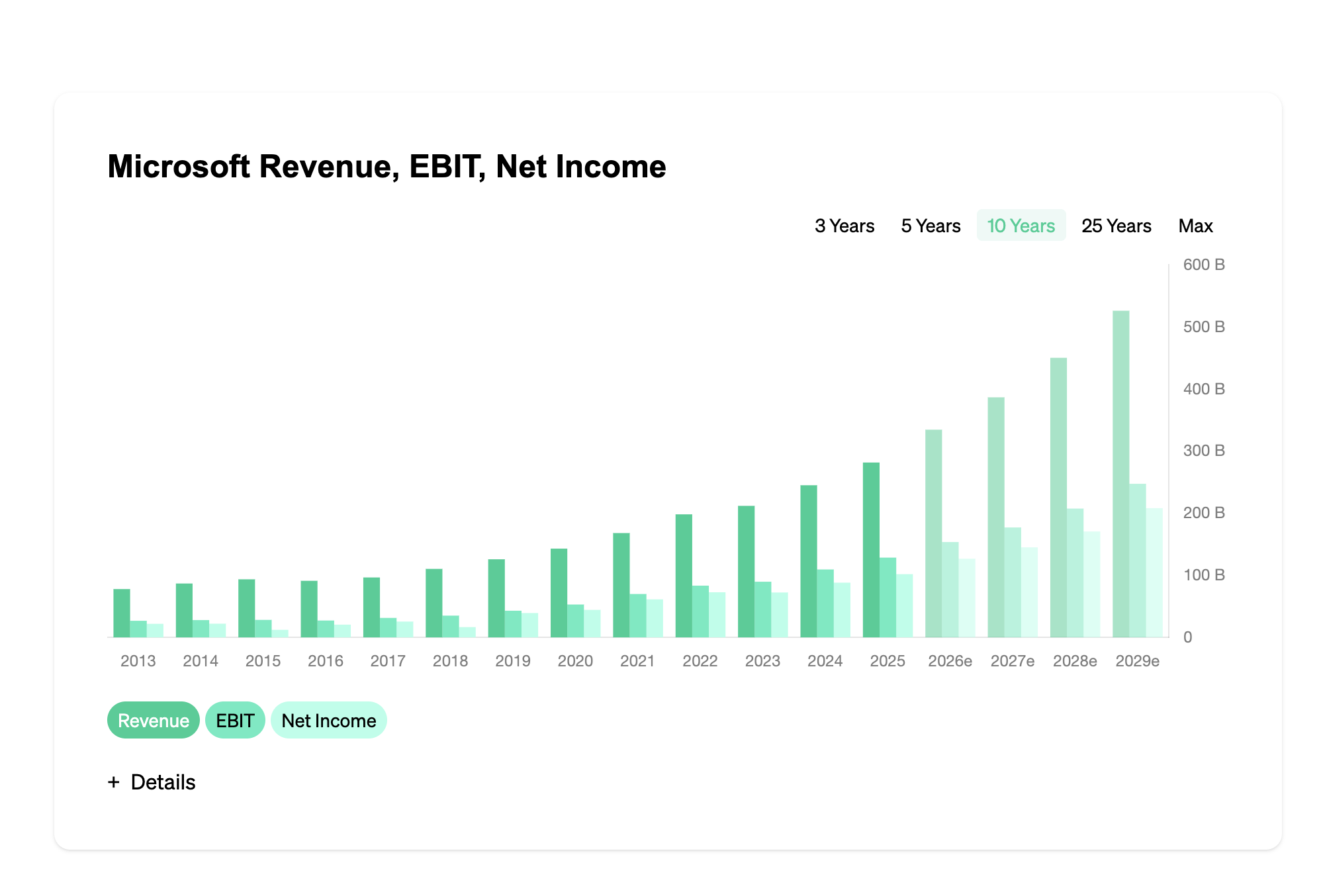Preisgesetz
Definition and Explanation
TL;DR – Brief Definition
Go to FAQs →Preisgesetz: The term "Preisgesetz" is a fundamental concept in the realm of capital markets, specifically within the field of economics. Preisgesetz, also known as the law of prices, refers to the economic principle that determines the relationship between supply and demand, ultimately influencing the prices of assets in various financial markets. Preisgesetz operates on the premise that as the demand for a particular asset increases, its price will subsequently rise, assuming all other factors remain constant. Conversely, if the supply of an asset surpasses its demand, its price will tend to decrease. This principle applies to a wide range of financial instruments including stocks, loans, bonds, money markets, and even cryptocurrencies. Understanding the intricacies of Preisgesetz is paramount for investors in capital markets as it enables them to make informed decisions and anticipate potential price fluctuations. By comprehending the concept of Preisgesetz, investors can evaluate the factors driving supply and demand dynamics for a given asset, enabling them to formulate effective investment strategies. In the context of stock markets, for instance, Preisgesetz comes into play when analyzing the behavior of stock prices. As demand for a particular stock increases, driven by factors such as positive news, strong financial performance, or favorable market conditions, its price is likely to rise. Conversely, if negative news or adverse economic conditions lead to a decrease in demand, the price of the stock may decline. For bond markets, Preisgesetz governs the relationship between the supply of bonds issued by governments or corporations and the demand for these fixed-income instruments. If the demand for bonds increases, whether due to a decrease in interest rates or perceived safety during economic downturns, the prices of the bonds will rise. Conversely, an oversupply of bonds or a higher interest rate environment may lead to a decline in bond prices. In the realm of cryptocurrencies, Preisgesetz plays a crucial role in determining the volatile prices of digital assets such as Bitcoin or Ethereum. As demand for these cryptocurrencies increases, driven by factors such as growing adoption or speculation, their prices surge. Similarly, if concerns regarding security, regulations, or market sentiment arise, the demand may diminish, leading to a decrease in cryptocurrency prices. In conclusion, Preisgesetz, or the law of prices, is a foundational principle in the world of capital markets. It serves as a guiding principle for investors seeking to understand and predict price movements in stocks, loans, bonds, money markets, and cryptocurrencies. By analyzing the factors influencing supply and demand dynamics, investors can leverage Preisgesetz to make informed investment decisions. Stay tuned on Eulerpool.com, a leading website for equity research and finance news, for further insights and analyses related to Preisgesetz and other essential concepts in capital markets.
Detailed Definition
Frequently Asked Questions about Preisgesetz
Was bedeutet Preisgesetz?
The term "Preisgesetz" is a fundamental concept in the realm of capital markets, specifically within the field of economics. Preisgesetz, also known as the law of prices, refers to the economic principle that determines the relationship between supply and demand, ultimately influencing the prices of assets in various financial markets.
Wie wird Preisgesetz beim Investieren verwendet?
„Preisgesetz“ hilft dabei, Informationen einzuordnen und Entscheidungen an der Börse besser zu verstehen. Wichtig ist immer der Kontext (Branche, Marktphase, Vergleichswerte).
Woran erkenne ich Preisgesetz in der Praxis?
Achte darauf, wo der Begriff in Unternehmensberichten, Kennzahlen oder Nachrichten auftaucht. In der Regel wird „Preisgesetz“ genutzt, um Entwicklungen zu beschreiben oder Größen vergleichbar zu machen.
Welche typischen Fehler gibt es bei Preisgesetz?
Häufige Fehler sind: falscher Vergleich (Äpfel mit Birnen), isolierte Betrachtung ohne Kontext und das Überinterpretieren einzelner Werte. Nutze „Preisgesetz“ zusammen mit weiteren Kennzahlen/Infos.
Welche Begriffe sind eng verwandt mit Preisgesetz?
Ähnliche Begriffe findest du weiter unten unter „Leserfavoriten“ bzw. verwandten Einträgen. Diese helfen, „Preisgesetz“ besser abzugrenzen und im Gesamtbild zu verstehen.
Favoritos dos Leitores no Dicionário da Bolsa Eulerpool
Remboursgeschäft
Das Remboursgeschäft, auch als Rückkaufvereinbarung bezeichnet, ist eine Vereinbarung zwischen einem Kreditgeber und einem Kreditnehmer, bei der der Kreditnehmer ein Wertpapier oder einen anderen Vermögenswert verkauft und sich gleichzeitig verpflichtet,...
Sterbevierteljahr
Bereitwillig stellen wir Ihnen das umfassendste und größte Glossar/Lexikon für Investoren auf den Kapitalmärkten zur Verfügung. Insbesondere im Bereich von Aktien, Krediten, Anleihen, Geldmärkten und Kryptowährungen. Unser Glossar wird auf...
Exponentialfunktion
Die Exponentialfunktion ist eine mathematische Funktion, die auf natürliche Weise in verschiedenen Bereichen der Finanzmärkte, wie Aktien, Kredite, Anleihen, Geldmärkte und Kryptowährungen, Anwendung findet. Sie wird verwendet, um das Wachstum...
Lohnstrukturerhebungen
"Lohnstrukturerhebungen" ist ein Fachbegriff, der im Kontext der Kapitalmärkte verwendet wird und sich auf umfassende Erhebungen und Analysen der Lohnstrukturen in verschiedenen Branchen und Sektoren bezieht. Diese Untersuchungen werden in...
Übungsfirma
Eine Übungsfirma bezieht sich auf ein fiktives Unternehmen, das ausschließlich zu Ausbildungszwecken in wirtschaftlichen und betriebswirtschaftlichen Schulungseinrichtungen, insbesondere in der beruflichen Bildung, eingesetzt wird. Es bietet den Lernenden eine praxisorientierte...
Zukunftsmarkt
Zukunftsmarkt ist ein Begriff, der sich auf einen aufstrebenden Markt oder einen Markt für zukünftige Technologien und Produkte bezieht. Es handelt sich um einen Fachbegriff im Bereich der Kapitalmärkte und...
Kommanditgesellschaft auf Aktien (KGaA)
Die "Kommanditgesellschaft auf Aktien (KGaA)" ist eine besondere Rechtsform einer Gesellschaft, die Elemente sowohl einer Aktiengesellschaft (AG) als auch einer Kommanditgesellschaft (KG) vereint. Dieser Unternehmensaufbau ist vor allem in Deutschland...
Steuerbescheid
Steuerbescheid ist ein wichtiger Begriff im deutschen Steuerrecht und bezeichnet den schriftlichen Bescheid einer Steuerbehörde, der die endgültige Festsetzung der Steuer für einen bestimmten Zeitraum oder eine bestimmte Steuerart enthält....
automatisierter Absatz
Definition: Automatisierter Absatz "Automatisierter Absatz" ist ein Begriff aus dem Bereich des elektronischen Handels und bezieht sich auf den automatischen Verkauf von Wertpapieren auf elektronischen Plattformen. Diese Plattformen nutzen fortschrittliche Algorithmen...
Beschlussfassung
Die "Beschlussfassung" ist ein zentraler Begriff im Bereich der Kapitalmärkte und bezieht sich auf den Prozess der Entscheidungsfindung innerhalb einer Organisation, insbesondere im Rahmen von Anlageentscheidungen. In diesem Kontext bezieht...

